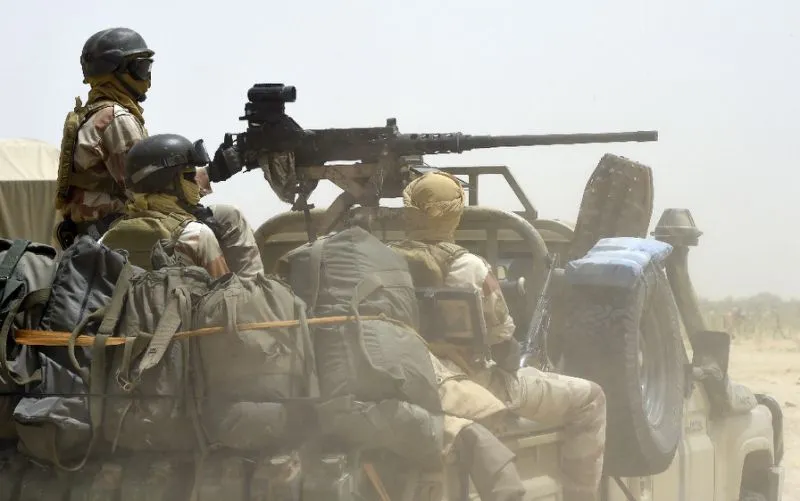By Senator Iroegbu
In recent discussions about post-traumatic stress disorder (PTSD) among Nigerian military personnel, it’s evident that progress in raising awareness and understanding remains limited. However, relenting is not an option as sustaining this momentum is crucial for meaningful change. In this follow-up to our earlier article on the outcome of a Focused Group Discussion and the need for media advocacy in addressing PTSD among military personnel, we delve deeper into the necessity for ongoing advocacy efforts, especially in advocating for policy changes and maintaining public awareness.
Research findings from the US Department for Veterans Affairs, indicate that “veterans are more likely to develop PTSD than civilians”, particularly those who have deployed for war operations. This trend reflects the situation in Nigeria, where reports of suicide cases and shooting incidents involving soldiers in counter-terrorism and counter-insurgency operations underscore the prevalence of PTSD among military personnel. The research findings by Florence Undiyaundeye and Inakwu Agbama, published in the Scholars Journal of Arts, Humanities and Social Sciences, reveal alarming statistics about PTSD among Nigerian Army personnel. They found that 99% of soldiers combating Boko Haram and other insurgencies suffered from chronic PTSD at some stage, compared to 41% of those without PTSD. This underscores the severity of the issue and its implications for both individuals and national security. The authors highlight the need for effective policies to address the root causes of PTSD and its widespread impact on military personnel.
However, addressing PTSD among military personnel requires recognising the scale of the problem and its profound impact on individuals, families, and society. Despite recent strides, the prevalence of PTSD among war-fighting personnel remains alarmingly high. Nigerian Chief of Army Staff, Taoreed Lagbaja, emphasized this concern during a seminar in August 2023, highlighting the need to intensify efforts in managing PTSD and substance abuse among troops deployed in various operations across the country. According to Lagbaja, it is “worrisome to us is the prevailing incidence of drug and substance abuse as well as PTSD among troops deployed in the theatres of operation across the country”. This acknowledgement at the highest levels is a positive step forward, acknowledging sustained efforts by organizations like the Green Heroes Foundation.
Encouragingly, Nigeria’s Defence Headquarters (DHQ) recently established PTSD Centres for troops across various theatres of operations, marking a significant milestone in addressing the mental health challenges faced by military personnel. According to the Director of Defence Media Operations, Maj-Gen. Buba Edward, the centres were established to checkmate the mental health of troops engaged in the ongoing fight against insecurity. However, challenges persist, with research indicating a high prevalence of PTSD among troops combating insurgencies. Addressing these challenges requires comprehensive policies involving different stakeholders including mental health experts, counsellors and support systems to assist affected individuals. Advocating for the allocation of resources and funding for PTSD research, treatment, and support programmes is imperative to ensure those suffering from PTSD receive the necessary care and assistance.
Advocacy efforts must also focus on maintaining public awareness and understanding of PTSD. While progress has been made in raising awareness, ongoing education and outreach efforts are essential to reduce stigma and encourage individuals to seek help when needed. Empowering the media to accurately report on PTSD is crucial in shaping public perceptions and attitudes towards mental health issues, including PTSD. By providing journalists with the necessary training and resources, we can ensure sensitive and effective coverage of this topic.
Addressing PTSD requires a collaborative approach involving various stakeholders, including the health experts, military, media, civil society organisations, and policymakers. Developing comprehensive strategies to prevent, identify, and treat PTSD among military personnel is essential. This includes implementing evidence-based interventions, providing access to mental health services, and fostering a supportive environment for those affected by PTSD.
Advocating for policy changes that prioritise mental health support for military personnel is paramount. This includes lobbying for the development of PTSD-specific policies and guidelines within military institutions, as well as advocating for legislative changes to improve access to mental health care and support services.
In conclusion, while progress has been made, there is still much work to be done in addressing PTSD among military personnel. Sustaining advocacy efforts is crucial to ensure meaningful change occurs. By continuing to advocate for policy changes, maintaining public awareness, and fostering collaboration between stakeholders, we can make a real difference in supporting the mental health and well-being of military personnel.
Iroegbu is a journalist, security analyst and Convener of Geopolitics Series
senator.iroegbu@yahoo.co.uk @seniroz

